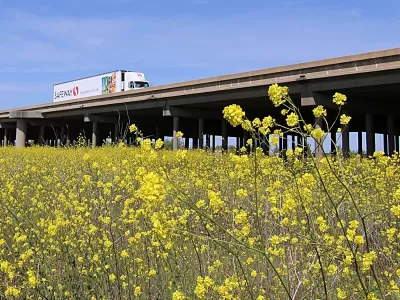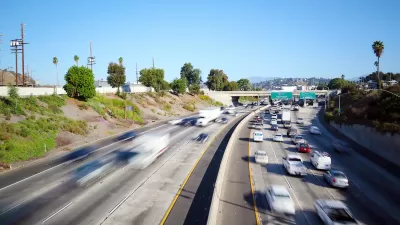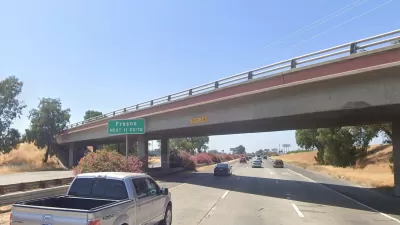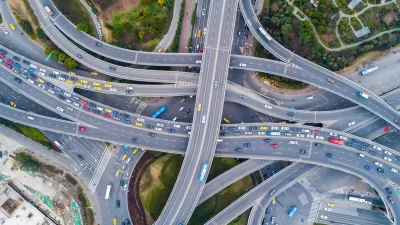Environmental groups argue that the agency purposely split the project into two phases to obscure the true impact of expanded road capacity.

A coalition of environmental groups are suing the California Department of Transportation (Caltrans) in an effort to force the agency to reassess the proposed Interstate 80 highway expansion project dubbed the Yolo Causeway, reports Melanie Curry in Streetsblog California.
The suit alleges that the environmental impact report for the project improperly divided it into separate parts to obscure its full environmental impact. “The first project is using S.B. 1 highway maintenance funds to strengthen the roadbed along the causeway between Davis and Sacramento. Because Caltrans is calling it a "maintenance" project, no environmental review was conducted. But the second part of the project will take advantage of that new roadbed to restripe the highway with a new lane, expanding capacity.”
According to the lawsuit, the EIR for the second part of the project significantly overstates congestion reduction benefits, while Caltrans only has plans to mitigate roughly half of the estimated new vehicle miles traveled. “Similar concerns - faulty VMT calculations and inadequate mitigations for what will be increased climate-damaging emissions - have arisen in numerous other highway expansion plans throughout the state, including the I-15 in the Inland Empire, Highway 1 in Santa Cruz, and Highway 99 in the Central Valley, among others.”
FULL STORY: Environmental Groups File Suit Against I-80 Highway Expansion

Study: Maui’s Plan to Convert Vacation Rentals to Long-Term Housing Could Cause Nearly $1 Billion Economic Loss
The plan would reduce visitor accommodation by 25,% resulting in 1,900 jobs lost.

North Texas Transit Leaders Tout Benefits of TOD for Growing Region
At a summit focused on transit-oriented development, policymakers discussed how North Texas’ expanded light rail system can serve as a tool for economic growth.

Why Should We Subsidize Public Transportation?
Many public transit agencies face financial stress due to rising costs, declining fare revenue, and declining subsidies. Transit advocates must provide a strong business case for increasing public transit funding.

How to Make US Trains Faster
Changes to boarding platforms and a switch to electric trains could improve U.S. passenger rail service without the added cost of high-speed rail.

Columbia’s Revitalized ‘Loop’ Is a Hub for Local Entrepreneurs
A focus on small businesses is helping a commercial corridor in Columbia, Missouri thrive.

Invasive Insect Threatens Minnesota’s Ash Forests
The Emerald Ash Borer is a rapidly spreading invasive pest threatening Minnesota’s ash trees, and homeowners are encouraged to plant diverse replacement species, avoid moving ash firewood, and monitor for signs of infestation.
Urban Design for Planners 1: Software Tools
This six-course series explores essential urban design concepts using open source software and equips planners with the tools they need to participate fully in the urban design process.
Planning for Universal Design
Learn the tools for implementing Universal Design in planning regulations.
City of Santa Clarita
Ascent Environmental
Institute for Housing and Urban Development Studies (IHS)
City of Grandview
Harvard GSD Executive Education
Toledo-Lucas County Plan Commissions
Salt Lake City
NYU Wagner Graduate School of Public Service





























